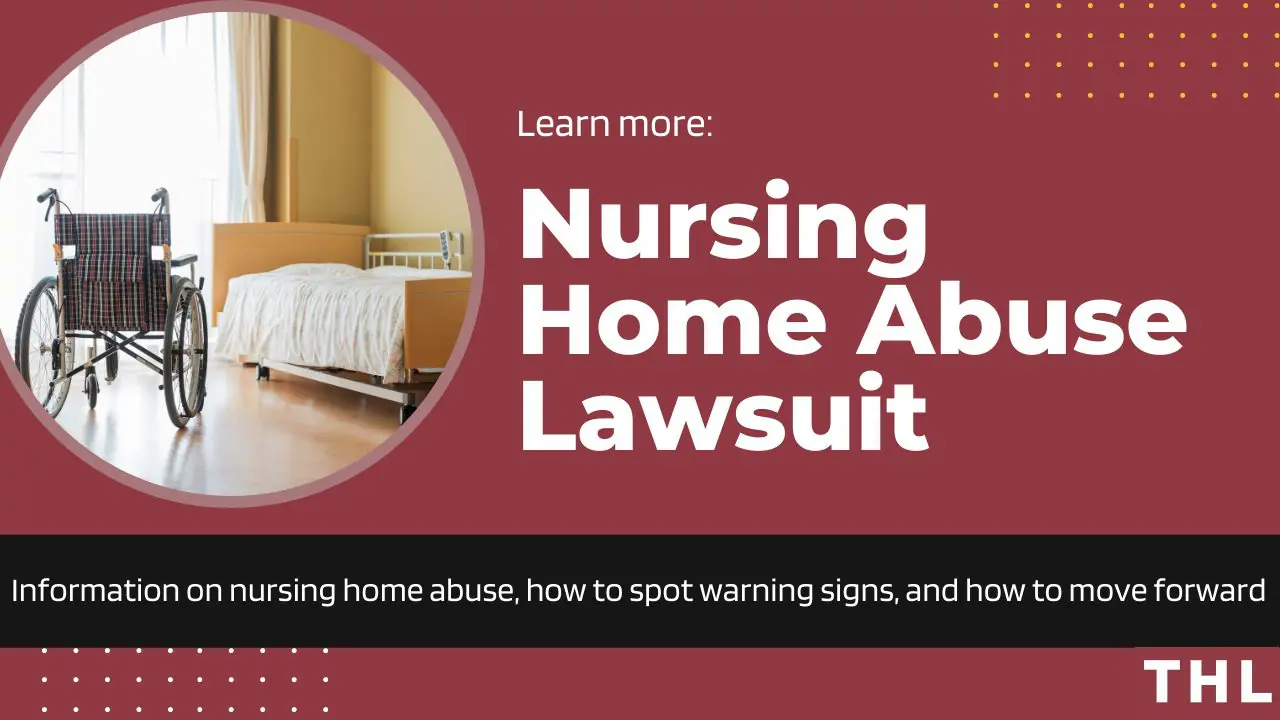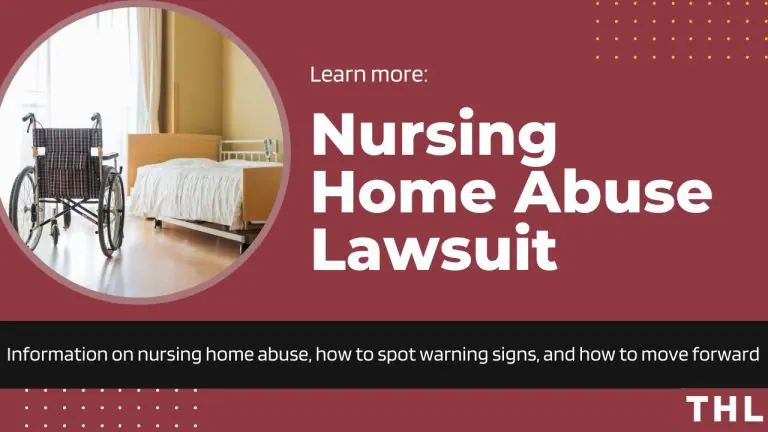Discovering signs of nursing home abuse or neglect can be distressing and overwhelming, but taking immediate action is crucial to protect your loved one.
Nursing home abuse or neglect often leaves families unsure of how to proceed, fearing retaliation or worsening conditions for the nursing home resident.
Acting quickly can prevent further harm and help hold the responsible parties accountable.
Documenting evidence and reaching out to the proper authorities can make a significant difference in addressing the issue.
If you suspect abuse or neglect, following these steps can help protect your loved one and strengthen your case for legal action.
Steps to take if you suspect nursing home abuse or neglect include:
- Ensure Immediate Safety: Remove your loved one from the harmful situation if they are in immediate danger. Call 911 for emergency assistance if necessary.
- Document Evidence: Take photos of injuries, unsanitary conditions, or other signs of neglect. Record dates, times, and details of any incidents or concerning behavior.
- Report the Abuse: Notify the nursing home administrator or management in writing about your concerns. Contact the Illinois Department of Public Health (IDPH) to file a formal complaint.
- Seek Medical Attention: Have your loved one evaluated by a medical professional to document injuries or health issues caused by the neglect or abuse.
- Consult a Nursing Home Abuse Lawyer: Reach out to an experienced attorney to understand your legal options and begin building a case against the responsible parties.
How to Report Nursing Home Abuse in Chicago and Illinois
If you suspect that an Illinois nursing home resident is experiencing abuse or neglect, it’s crucial to take immediate action to protect their well-being.
The Illinois Department of Public Health (IDPH) operates a Central Complaint Registry to record and investigate complaints regarding nursing facilities.
You can report suspected nursing home abuse by calling the Nursing Home Hotline at 1-800-252-4343.
Additionally, the Illinois Department on Aging provides an Adult Protective Services (APS) Hotline at 1-866-800-1409 for reporting abuse, neglect, exploitation, or self-neglect of adults aged 60 or older, or persons with disabilities aged 18-59.
Steps to report nursing home abuse include (but are not limited to):
Step #1: Ensure Immediate Safety
If the resident is in immediate danger, call 911 to get prompt medical treatment and intervention.
Step #2: Document Observations
Keep detailed records of any signs of abuse or neglect, such as bed sores, unexplained injuries, or changes in behavior. Note dates, times, and specific incidents.
Step #3: Contact the Appropriate Authorities
- IDPH Nursing Home Hotline: Call 1-800-252-4343 to report suspected abuse in nursing home facilities.
- APS Hotline: For residents aged 60 or older, or adults with disabilities aged 18-59, call 1-866-800-1409.
Step #4: Provide Detailed Information
When reporting, be prepared to give the resident’s name, the facility’s name and address, and specific details about the suspected abuse or neglect.
Step #5: Follow Up
After reporting, stay in contact with the authorities to monitor the progress of the investigation and ensure that appropriate actions are taken.
Reporting abuse is a critical step in safeguarding nursing home patients and holding nursing home staff members accountable for their actions.
By promptly addressing suspected nursing home abuse, you help protect vulnerable elderly residents and contribute to improving the quality of care in Illinois nursing home facilities.
Common Evidence in Nursing Home Abuse Cases
Evidence is vital in nursing home abuse cases to demonstrate negligence, identify responsible parties, and build a strong legal claim.
Properly collected evidence can highlight patterns of mistreatment or neglect and ensure that justice is served for abused or neglected residents.
Families and legal teams must act promptly to gather and preserve evidence, as this is critical for proving liability and securing compensation for victims.
Common Types of Evidence in Nursing Home Abuse Cases:
- Medical Records: Document injuries, medical treatment, and signs of neglect, such as untreated bed sores or malnutrition.
- Photographs and Videos: Capture visible injuries, unsanitary conditions, or improper use of physical or chemical restraints.
- Witness Statements: Include testimony from other residents, visitors, or nursing home staff members who may have observed abuse or neglect.
- Facility Reports: Internal reports or incident logs maintained by the nursing home, which may document prior complaints or suspicious events.
- Surveillance Footage: Video recordings from the facility that may provide direct evidence of abusive behavior or negligence.
- Behavioral Changes: Records or observations of emotional or mental abuse, such as signs of fear, depression, or withdrawal.
- Correspondence: Emails, letters, or texts between staff members or management discussing incidents or failing to address complaints.
- Inspection Reports: Findings from state or federal nursing home inspections, highlighting deficiencies or violations of the Nursing Home Care Act.
- Bills and Financial Records: Evidence of financial exploitation, such as unauthorized charges or access to the resident’s funds.
Collecting and organizing this evidence is essential for holding negligent nursing home facilities accountable and ensuring that elderly residents receive justice and proper care.
Damages in a Nursing Home Abuse Lawsuit
In a legal context, “damages” refer to the compensation awarded to victims or their families for the harm they have suffered due to negligence or abuse.
In nursing home abuse lawsuits, damages are meant to address both the tangible financial costs and the emotional or physical toll of the mistreatment.
Victims and their families can pursue these damages to hold negligent nursing facilities accountable and secure the resources needed to recover and move forward.
Understanding the types of damages available is an important step in building a strong legal case.
Common Damages in Nursing Home Abuse Lawsuits:
- Medical Expenses: Compensation for costs associated with injuries, including hospitalization, surgeries, medications, and ongoing medical treatment.
- Pain and Suffering: Covers the physical pain and emotional distress caused by abuse or neglect.
- Loss of Enjoyment of Life: Compensation for the diminished quality of life due to injuries or mistreatment.
- Emotional Distress: Addresses the psychological effects of abuse, such as anxiety, depression, or post-traumatic stress disorder.
- Wrongful Death: In cases where abuse leads to a resident’s death, families may seek compensation for funeral expenses and loss of companionship.
- Financial Exploitation: Reimbursement for stolen funds, unauthorized charges, or mismanagement of a resident’s financial affairs.
- Punitive Damages: Additional compensation intended to punish the facility for egregious misconduct or negligence.
- Relocation Costs: Covers the expenses associated with moving the victim to a safer nursing facility.
These damages aim to provide justice for neglect victims and ensure that nursing home facilities prioritize the safety and well-being of elderly residents.















